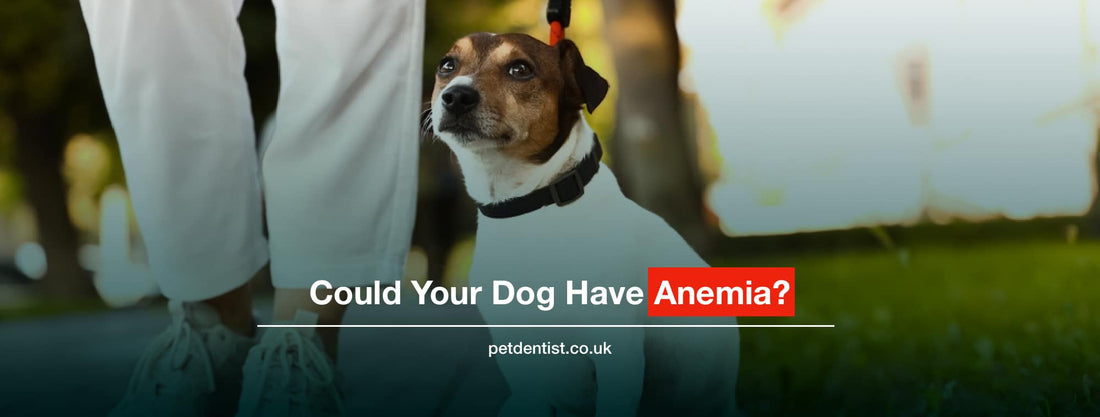
Could Your Dog Have Anemia? Here's What Every Pet Parent Should Know
Share
As loving pet parents, we always want our dogs to be happy, energetic, and full of life. But what if your usually bouncy pup suddenly seems tired, weak, or just not themselves? These could be signs of anemia—a condition that many dog owners aren’t aware of, but one that can seriously affect your furry friend’s health.
What Is Anemia in Dogs?
Anemia happens when your dog doesn't have enough healthy red blood cells or hemoglobin to carry oxygen throughout the body. Without enough oxygen, your dog may appear lethargic, weak, or pale—especially in their gums.
There are several types of anemia in dogs:
- Blood loss anemia: Often caused by injuries, parasites (like fleas or ticks), or internal bleeding.
- Hemolytic anemia: A condition where red blood cells are destroyed faster than they’re made, sometimes due to autoimmune diseases.
- Aplastic anemia: When the bone marrow fails to produce enough blood cells.
Signs Your Dog Might Be Anemic
While symptoms vary, here are common red flags to watch for:
- Pale gums or tongue
- Low energy or fatigue
- Loss of appetite
- Rapid breathing or heartbeat
- Dark or bloody stools
- Weight loss
- Collapse or fainting (in severe cases)
If you notice more than one of these symptoms, don’t wait—contact your vet immediately.

How Vets Diagnose Anemia?
Your vet will likely start with a complete blood count (CBC) to check red blood cell levels. They may also do tests to identify the cause—whether it's parasites, internal bleeding, immune disorders, or something else.
The root cause matters because anemia is not a disease itself, but a sign of an underlying problem.
Common Causes of Canine Anemia
Anemia can result from many health issues, including:
- Heavy flea or tick infestations
- Internal parasites like hookworms
- Chronic diseases (e.g. kidney disease, cancer)
- Poor nutrition
- Toxins, like ingestion of onions, garlic, or zinc
It’s crucial to address not just the anemia, but the condition causing it.
How Is It Treated?
Treatment depends on what’s behind the anemia:
- Deworming or flea/tick treatments for parasites
- Medication for autoimmune issues
- Surgery if there’s internal bleeding or tumors
- Blood transfusions in emergency cases
For mild cases, improving diet or treating chronic conditions may be enough. Always follow your vet’s advice carefully.
Can You Prevent It?
Absolutely! Here’s how to reduce your dog’s risk:
- Keep up with regular deworming and flea prevention
- Feed a nutritionally balanced diet
- Avoid giving human foods that are toxic to dogs
- Visit the vet for routine check-ups and early screening
Final Thoughts
Anemia in dogs can be scary—but it’s treatable, especially when caught early. If your dog seems off, don't brush it off. Trust your instincts, talk to your vet, and take action. Your four-legged friend is counting on you.
